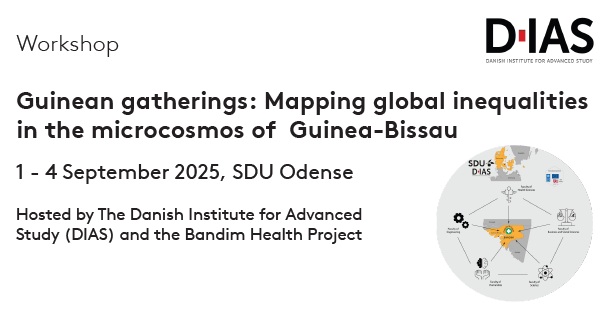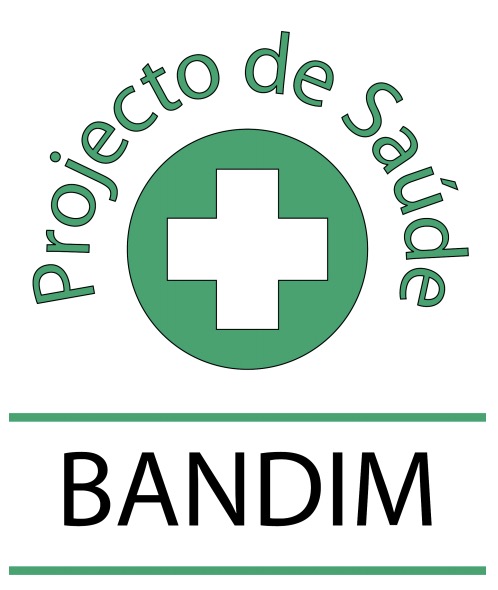
The transdisciplinary gathering brought together scholars from across disciplines to explore Guinea-Bissau, a country where the University of Southern Denmark has an established research presence through the Bandim Health Project. This longstanding collaboration provides 47 years of invaluable health and demographic data, offering a unique foundation for analyzing systemic global challenges—ranging from environmental/climate change to health disparities, economic marginalization, epistemic injustice, linguistic colonialization, and cultural resilience.
The goal of the workshop was to investigate how Guinea-Bissau serves as a microcosm of broader global inequalities, reflecting the entanglements of ecological crises, economic dependency, cultural traditions, and social transformation. Through collaborative discussions and research, we aimed to bridge perspectives across sociology, environmental anthropology, biology/ecology, climate science, health sciences, linguistics, cognitive science, and ecological economy, fostering innovative approaches to some of the world’s most pressing wicked problems.
The workshop featured
- Presentations covering the socio-cultural fabric of Guinea-Bissau, the environmental and economic constraints shaping daily life, the impact on health and the impact of health disparities, and the broader systemic forces reinforcing inequality.
- Collaborative sessions to develop a position paper outlining future research priorities and funding opportunities.
- Engagement with local and international stakeholders, including scholars, policymakers, and practitioners working on Guinea-Bissau and similar contexts.
Organisers
- Søren Askegaard (SDU/SAMF)
- Elzbieta Pastucha (SDU/TEK)
- Cintia Organo Quintana (SDU/NAT)
- Sune Vork Steffensen (SDU/HUM)
- Christine Stabell Benn (SDU/SUND, Bandim Health Project)
Invited speakers
- Camilla Fløistrup, Former UNDP, Guinea-Bissau
- Eric Arnould, Aalto University School of Business, Finland
- Morto Fande, Universidade Amílcar Cabral, Guinea-Bissau
- Orlando Mendes, University of Lisbon, Portugal
- Joana Roque de Pinho, University of Lisbon, Portugal
- Amelia Frazao Moreira, CRIA – NOVA FCSH, Portugal
- Bucar Indjai, National Institute of Studies and Research – INEP, Guinea-Bissau
- Dominic Loomes, University Institute of Lisbon, Portugal
DIAS Working Group on Global Inequalities
- Søren Askegaard (SDU/SAMF)
- Sebastian Mernild (SDU/NAT)
- Sune Vork Steffensen (SDU/HUM)
- Shriram Venkatraman (SDU/SAMF)
- Gareth Milward (SDU/HUM)
- Carolin Löscher (SDU/NAT)
- Angela Chang (SDU/SUND)
- Karl Attard (SDU/NAT)
- Cintia Organo Quintana (SDU/NAT)
- Maria Elo (SDU/SAMF)
- Elzbieta Pastucha (SDU/TEK)
- Sani Abdullahi (SDU/TEK)
- Parisa Niloofar (SDU/TEK)
- Ane Fisker (SDU/SUND)
- Peter Aaby (SDU/SUND)
- Ulrik Pagh Schultz Lundquist (SDU/TEK)
- Christine Stabell Benn (SDU/SUND, Bandim Health Project)
Danish Institute for Advanced Study (DIAS) is an interdisciplinary elite research center dedicated to world-class, curiosity-driven research. DIAS operates independently across the traditional faculty structure at the University of Southern Denmark (SDU).


Joana Roque de Pinho showed her pictures from her research project “Fotógrafos de Kabambol: rice farmers as environmental historians in Cantanhez National Park, southern Guinea-Bissau” in a small exhibition in front of the SDU University library.
Read the article in GlobalNyt (in Danish) featuring Joana Roque de Pinho and Orlando Mendes: “Forsker bad risbønder I Guinea-Bissau fotografere forandring. Dette billede var deres favorit”.
